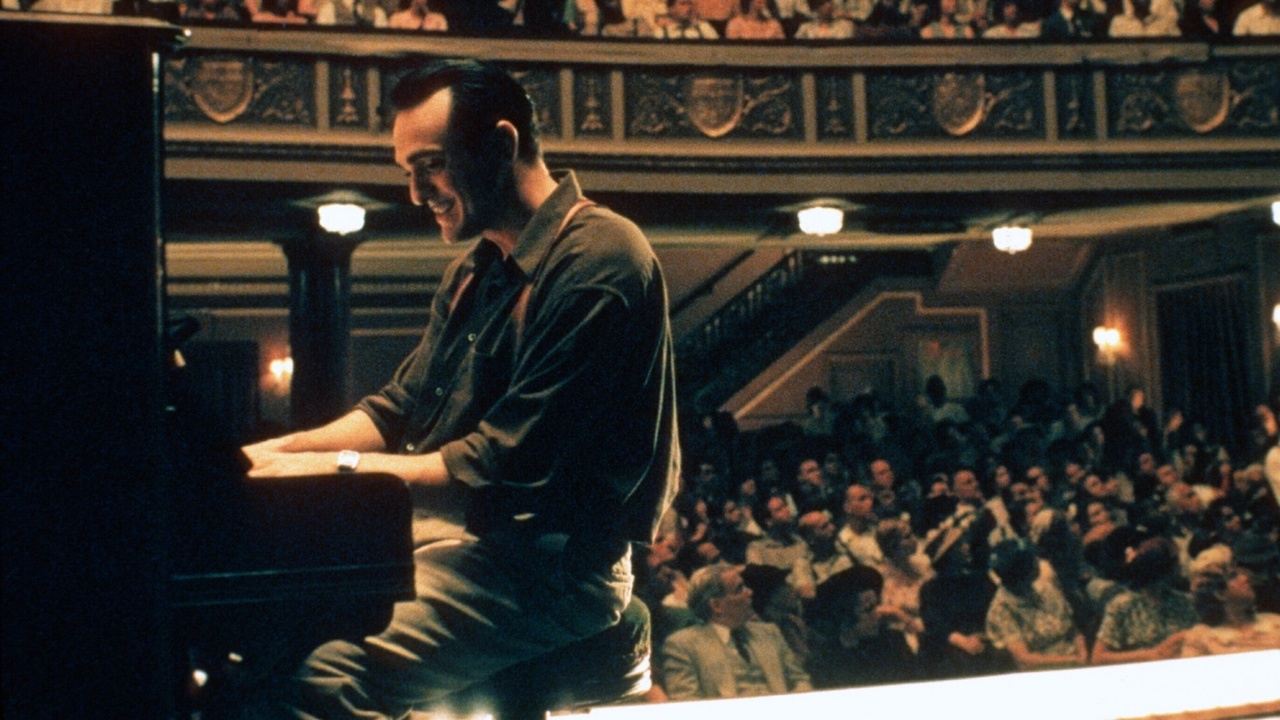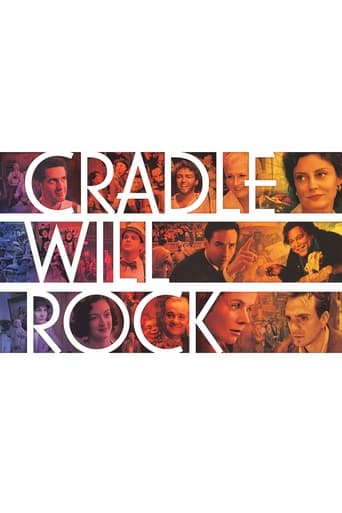

too many historical inaccuracies. the movie is set in 19371. fascism wasn't anti-semitic until the mid thirties, and the first racial laws were passed in 1938 on account of the pressing ideological pull of the dominant ally, Nazi Germany. Hitler needed the Italians to get on par with the racial discrimination, otherwise he couldn't justify to the Aryan German people being allied with an inferior people, and all the propaganda efforts put into making the Germans feel as a unite comradeship against their many inferior enemies would promptly fail its purpose. Mussolini obediently submitted to his requests and promulgated the race manifesto, despite counting many Jews among his friends and acquaintances himself, like his ex lover the writer Margherita Sarfatti2. Margherita Sarfatti was a strong supporter of Mussolini, but that changed when the racial laws were passed. She soon left the fascist party and went to Argentina. So if she ever went to the USA to promote Mussolini, this was surely before the regime turned anti-semitic.3. Italy and Germany did not attack Spain. They aided and military and politically supported the nationalist rebels leaded by Franco, who tried a coup during the civil war to restore a conservative regime which had been subverted by the late socialist government and numerous anarchist riots. IE Spain was already a mess. Many Italian Marxists, communists and socialists also went and fought in Spain alongside the republican forces - which were aided by the URSS - against the falangistas and the fascist regular troops. 4. Rivera painted that mural in 1933, so all dates and facts happening in the movie mismatch.5. In my understanding there was wide sympathy and support for Italian fascism in the American parlors, which isn't as apparent watching the movie. They favored fascism in juxtaposition to communism, as the latter was founded on class conflict, and the first on induced/enforced social peace and corporatism - which was already part of the American culture and economy, although in a more liberal form (and it still is). The fascist ideology found ground in the frightened middle and upper classes in all of the world, as the unions were getting stronger and the rich were scared of a Marxist revolution.
... View MoreFrom the initial scene as she rises before the camera, Emily Watson takes possession of this film and brings it life, heart, and soul. She creates here a character of depth and realism so profound that one can never take there eyes off of her. Ms. Watson is acknowledged to be an actor's actor and that is never more apparent and clearly proved than among this outstanding cast. Her stunning artistic gift and screen presence causes her to tower over her fellow actors and she is able to reach out to them and help them deliver performances that would otherwise never have graced this film. Watson also reveals heretofore unrevealed talents as a singer who can deliver a song in a way that is both riveting and heart breaking. The camera indeed loves Emily Watson as much as audiences and in this film she once again presents viewers with a priceless gift of a performance, ripping bare her soul to put all her being into the character she assays. What she achieves here would stand alone as the performance of a lifetime, but Emily Watson does it in film after film, whether as star or in a featured part, it is she that stands out and captures us forever with her magnetic genius, graceful beauty, and profound spirituality.
... View MoreCradle Will Rock is a drama that chronicles the process and events that surrounded the production of the original 1937 musical The Cradle Will Rock by Marc Blitzstein.It has an ensemble cast that includes Hank Azaria,Ruben Blades,Joan Cusack,John Cusack,Cary Elwes,Angus Macfadyen, Bill Murray,Vanessa Redgrave,Susan Sarandon,John Turturro and Emily Watson .Tim Robbins,in his third film as director, adapts history to create this fictionalized account of the original production, bringing in other stories of the time to produce this commentary on the role of art and power in the 1930s, particularly amidst the struggles of the 1930s labor movement and the corresponding appeal of socialism and communism among many intellectuals and working class people of that time.Orson Welles and John Houseman are working with Marc Bliztstein to stage the latter's leftist musical "The Cradle Will Rock" for the WPA-funded Federal Theater Project. After Congress cuts funding for the embattled Federal Theater over the perceived leftist slant of their presentations, the project is canceled on the day of its premier. Welles and his cast respond by marching 21 blocks from the theater where the show was to open to another venue where, in deference to Actors Equity regulations, they perform the entire show from the audience. A member of Welles' cast, Aldo Silvano, is a dedicated actor from Italy who is trying to resolve his attitudes about his family, who loyally support Mussolini, to Silvano's disgust. Meanwhile, El Duce's former mistress, Margherita Sarfatti, is consorting with industrial tycoon Gray Mathers,whose wife, Contesse LaGrange is a friend and supporter of Welles' project. Elsewhere, Nelson Rockefeller has hired ex-patriot Mexican artist Diego Rivera to create a mural for his projected Rockefeller Center, but the two are soon locking horns over their different views on art, politics and the work at hand. And a ventriloquist fallen on hard times, Tommy Crickshaw, finds himself trying to teach both comedy and speaking without lip movements to a pair of would-be performers at a WPA-backed vaudeville house. Art and politics collide in Tim Robbins' ambitious but not entirely successful effort to recreate a unique moment in American culture circa 1937.It presents good entertainment with superior acting performances and a stellar cast.Also,as a mixture of drama, humor and history, a mélange of seriousness and slapstick, real people and imagined characters, it definitely stands out.
... View MoreTim and Susan have been on the forefront of our political and artistic landscape for many years, regardless of the personal or artistic costs. They are Hollywood players, and as such, I do not always stand and cheer when I see one of their films. It's taken some time for me to recognize their excellent aspirations. Not to say I haven't embraced their intentions in a general way. With this film, "Cradle Will Rock," however, I embrace them unconditionally.I have deep theatrical roots, and was simply enchanted by the frame of this story inside Roosevelt's WPA theatre project of the early '30s. As deeply embedded in the theatre as I am, I had no idea, I blush to admit, that I owed so much to the extraordinary legacy of the artists and managers from that era. So, for this alone, I am grateful to the filmmakers.Within my personal history in the theatre, I have long struggled with the zeal in needing to produce "theatre in defense of civil and human liberties," and reconciling that with the ongoing pressures of making a buck. Not that I insist all artistic need be "liberty" oriented. But I am uneasy in choosing a work to produce or to witness, if I cannot find a pillar of social justice within it. The earth is far too fragile, and the threats to her and her inhabitants are far too imminent, to waste time otherwise.Back to the film: Not only was I unaware of the WPA theatre project, I was unaware there was a McCarthy-Era-like-witch hunt to dismember the artists and producers and administrators. I kept thinking as I watched the Senate interrogations, "Is that Senator McCarthy? That can't be--that doesn't happen for 30 years!" The parallel is unmistakable (uncanny), and one can't help but ponder its legacy: The McCarthy Era; Senator Jesse Helms' vicious, relentless attacks on public funded arts, media and humanities; the Bush Doctrine, and so on. And as I watched, there was this small voice telling me what we all know: "Those who don't learn from history are doomed to repeat it." I was shocked to learn that this hideous bureaucracy has been using every weapon at hand to demolish the arts in the US for at least 80 years. For this revelation alone, I honor these filmmakers.The history and political science are presented excellently here, and might be subjects for good documentaries. Believe it or not, I do like entertainment, and it's likely I would've missed the lessons had they been presented as documentaries. Instead, Tim has written one of the most compelling screenplays with very diverse human stories interwoven in what must've been a pitch to studio execs that was unwieldy and impossible to track. Not so in the execution. I write screenplays, and I am many times undone by the weight of my convictions. Not so with "Cradle." The writing here is superb.To climax with a performance of the musical "Cradle Will Rock" booked in a vaudeville house in a last ditch effort after the Feds close down the original venue is divinely inspired. The "show-must-go-on" mentality produced with a pianist and piano on an empty stage, before a standing room only crowd of recently fired performers and technicians, their families, friends, and supporters is just bloody brilliant. When the performers stand up in the house to join the performance--Equity Union rules they cannot step on stage--when these performers step into their roles, rising up from the audience itself, and in spite of very real threats of being black balled--the effect is sublime. It's as though the observers become the observed--that alchemical magic every sincere performer strives to achieve. To accomplish this on film is rare. Sure, you often identify with a character in a film, but you often do it in a kind of hypnotic escapist state. This film achieves something more particular, more active in the way of audience/performer union."Cradle Will Rock" is one of the best film arts arguments for democracy. It is a gift to all of us. Let us honor and treasure the filmmakers.
... View More